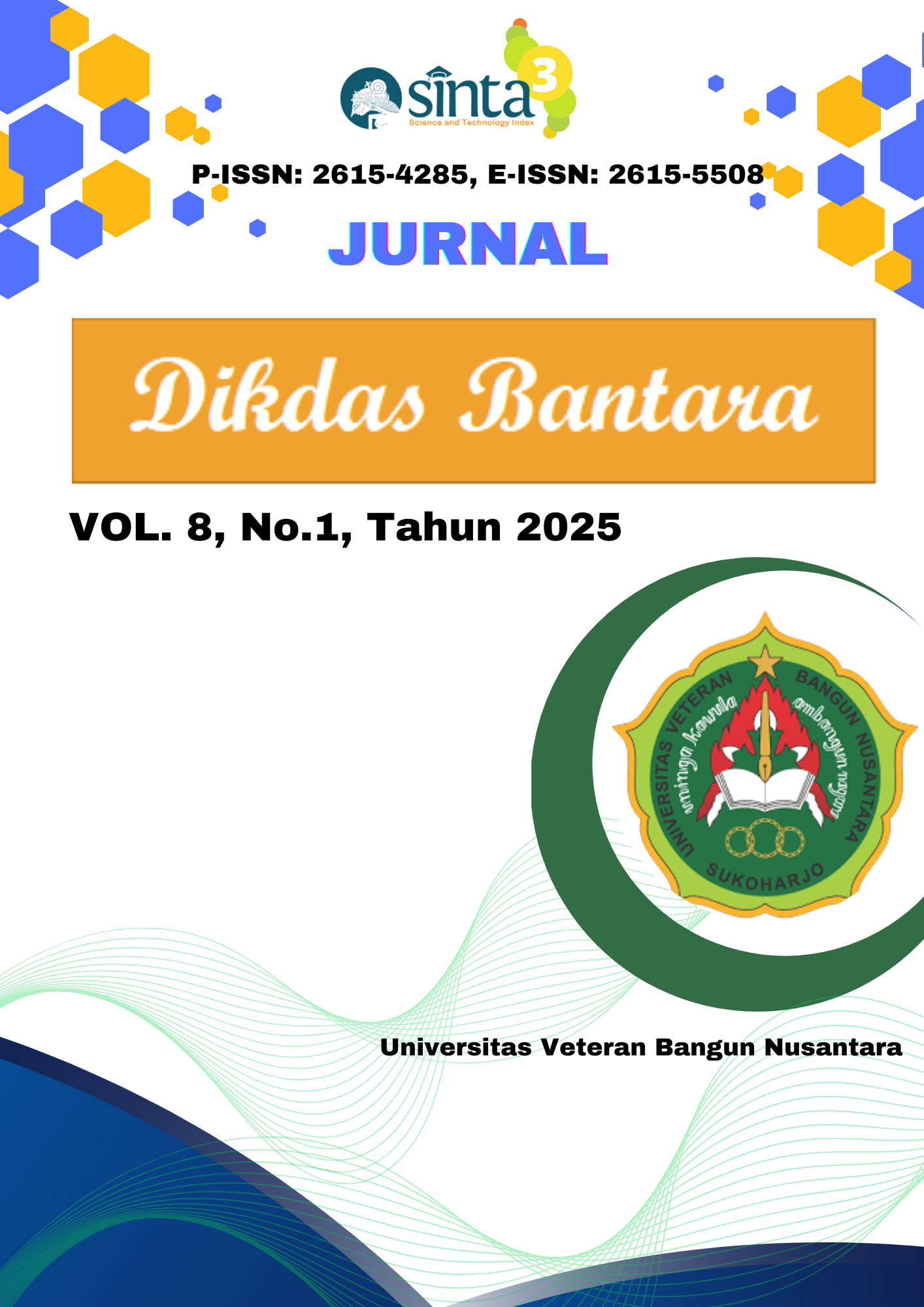IMPROVING DISCIPLINE AND LEARNING OUTCOMES IN MATHEMATICS THROUGH THE PROJECT BASED LEARNING METHOD IN ELEMENTARY SCHOOL STUDENTS
DOI:
https://doi.org/10.32585/dikdasbantara.v8i1.5856Abstract
Based on the initial observations that have been carried out, problems were found in the form of low levels of discipline and student learning outcomes before integrating project-based learning. The purpose of the research action was carried out as an effort to improve the attitude of discipline and learning outcomes of mathematics on the material of blocks and cubes in grade IV students of SD Negeri Karangasem 4, Surakarta, totaling 26. The research was conducted over two cycles through a series of planning, action, observation, and reflection. Data collection techniques include observation and written tests. Data analysis is qualitative and quantitative. The results of the study showed that the overall level of discipline of students showed a percentage of 58%, after the first cycle was carried out there was an increase in the rate of 77%, then the second cycle again showed an increase in the percentage of 92%. The learning outcomes of students before the cycle were carried out by 23%, increased in the first cycle by 62%, and in the second cycle again increased to 92%. The average overall score of students was 85 with a completion percentage of 92% as many as 24 students completed the KKTP. The data shows that the implementation of project-based learning can improve discipline and learning outcomes of students.
Downloads
Downloads
Published
Issue
Section
License
Copyright (c) 2025 Kustyaning Feby Putri Utami, Ratnasari Diah Utami, Dwi Ratna Handayani

This work is licensed under a Creative Commons Attribution-ShareAlike 4.0 International License.
The copyright to this article is transferred to Jurnal Dikdas Bantara if and when the article is accepted for publication under Creative Commons Attribution-ShareAlike 4.0 International License. The undersigned hereby transfers any and all rights in and to the paper including without limitation all copyrights to Jurnal Dikdas Bantara. The undersigned hereby represents and warrants that the paper is original and that he/she is the author of the paper, except for material that is clearly identified as to its original source, with permission notices from the copyright owners where required. The undersigned represents that he/she has the power and authority to make and execute this assignment.We declare that:
1. This paper has not been published in the same form elsewhere.
2. It will not be submitted anywhere else for publication prior to acceptance/rejection by this Journal.
3. A copyright permission is obtained for materials published elsewhere and which require this permission for reproduction.
Furthermore, I/We hereby transfer the unlimited rights of publication of the above-mentioned paper in whole to Jurnal Dikdas Bantara. The copyright transfer covers the right to reproduce and distribute the article, including reprints, translations, photographic reproductions, microform, electronic form (offline, online), or any other reproductions of similar nature. The corresponding author signs for and accepts responsibility for releasing this material on behalf of any and all co-authors. After submission of this agreement signed by the corresponding author, changes of authorship or in the order of the authors listed will not be accepted.
Retained Rights/Terms and Conditions
1. Authors retain all proprietary rights in any process, procedure, or article of manufacture described in the work.
2. Authors may reproduce or authorize others to reproduce the work or derivative works for the author’s personal use or for company use, provided that the source and the Jurnal Dikdas Bantara copyright notice are indicated, the copies are not used in any way that implies Jurnal Dikdas Bantara endorsement of a product or service of any employer, and the copies themselves are not offered for sale.
3. Although authors are permitted to re-use all or portions of the work in other works, this does not include granting third-party requests for reprinting, republishing, or other types of re-use.



















